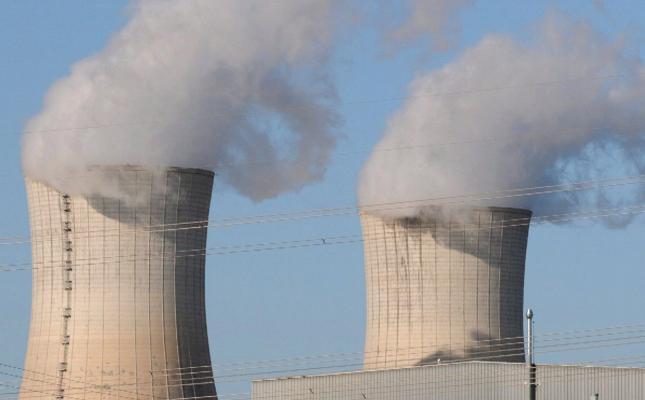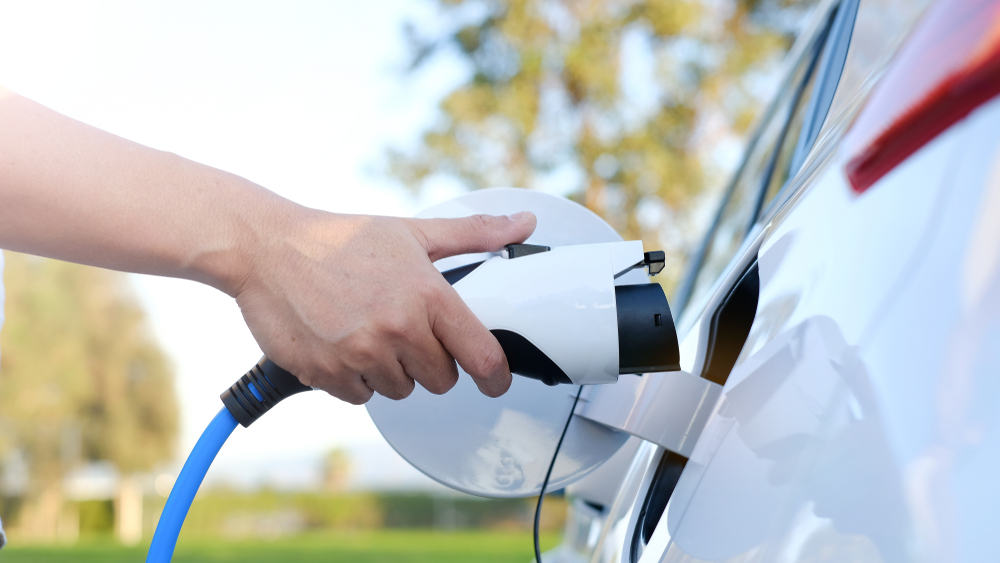Automotive Faces a Bumpy Road Ahead Again in 2024

Minister of National Economy Márton Nagy, seen here speaking at a press conference on the government’s new Competitiveness Strategy 2024-2030 on March 25, has called for a joint EU program to target EV subsidies for consumers and producers.
Photo by Zoltán Balogh / MTI.
Automotive in Hungary had a tough but successful year in 2023. The near future looks equally challenging; will it be similarly successful?
Last year was anything but a victory march for the Hungarian economy. GDP contracted by 0.9%, and, more alarmingly, if you disregard the impact of agriculture, the decline amounted to 3.2%. By contrast, automotive, albeit facing raging inflation and a post-COVID energy crisis, did rather well. The number of cars manufactured was up by 10% compared to 2022. Certain brands excelled even more: Suzuki increased output by 24%.
The horizon doesn’t look that shiny, though, as plenty of critical issues lurk down the road. As was pointed out at the Portfolio-MAGE Automotive 2024 Conference, executives are now expected to be energy experts so they can steer their companies through the current troubled waters.
In the process, digitization is of paramount importance. Those who have followed through with this imperative can intervene in their production systems more effectively. SMEs are not being left out of this integration, and they are often assisted by larger companies. Take the initiative of Bosch Rexroth to set up a digital experience center to display the latest manufacturing tech to suppliers. Digitization has further added value in the field of energy procurement, too.
What matters most, however, is the carbon footprint of products. Because of this, manufacturers pay extra attention to the activities of their suppliers in this regard. Energy was priced at about EUR 50 MW/h before the crisis, and after jumping north of EUR 100, it is predicted to settle around EUR 88 in 2025.
Smashing Targets
Accordingly, green energy capacities have been ramped up at dramatic speed. Total solar energy production in Hungary has exceeded a capacity of 6,000 MW. That threshold was initially planned to be reached by 2030. Current estimates target up to 12,000 MW by that date, wind power included.
The energy issue will gain significance in the short term as Hungary currently imports around 30% of its energy, and the recently announced battery mega projects from Asian companies are set to spike energy demand by 15-25%. Chinese stakeholders are, therefore, reportedly taking matters into their own hands by installing their own capacities. They plan to invest USD 2.5 billion in building solar farms in Hungary, according to investigative news portal Vsquare.
Speaking of Chinese automotive investments, the European sector has the gigantic task of standing its ground against Eastern rivals. China gained an early head-start in electrification thanks to lavish government subsidies and its quasi-monopoly of mining critical rare earth raw materials.
As a result, popular Chinese brands are available for as little as EUR 7,000, whereas European carmakers struggle to push the price below EUR 20,000. The old continent had better prepare for its markets to be flooded: EV and plug-in hybrid champion BYD is building its own fleet of eight cargo ships that can transport up to 56,000 vehicles to Europe in one go.
All that causes unease with good reason and calls for counter-measures. Recently, Minister of National Economy Márton Nagy said that instead of taking a broad general approach to the green and digital transition, a more specific sector-based one should be adopted. He also proposed that a new joint EU program should be launched to target EV subsidies for consumers and producers.
Debrecen-based Investors Forge Closer Ties With Academia
Debrecen (225 km east of Budapest) has become an FDI magnet in the past decade. The city is frequently ranked among the top 10 in the FDI Strategy category of Fdi Magazine’s Small Cities of the Future list. Between 2014 and 2023, Debrecen drew EUR 10.4 bln in investments, which doesn’t include battery-producing behemoth Eve Power’s recently announced mega project, for instance.
The local academic ecosystem leaves no stone unturned to ensure it can forge closer relations with investors. Accordingly, the University of Debrecen has announced that battery manufacturers setting up facilities in the city have agreed to establish a research institute. The university’s researchers are tracking the impact of increased industrial activity in the city on air, soil, water quality, and biodiversity. A new level of cooperation with battery producers could help build trust between the public and the industry. It is badly needed since there have been several protests against the planned large-scale battery investments.
BMW is also reaching out to academia. The German OEM, which has a cutting-edge iFactory under construction in Debrecen, signed a strategic partnership agreement with several faculties of the local university last June. Now, cooperation will extend to the Faculty of Law and the Faculty of Economics.
AutoWallis is Rolling
AutoWallis recently celebrated the fifth anniversary of the company’s listing on the Budapest Stock Exchange by ceremoniously ringing the opening bell. The good mood was understandable. Since the firm listed its shares, its revenue has quadrupled, and its profits have grown by a factor of 10, supported by acquisitions and organic growth. It has raised HUF 48 bln from the capital market, made more than 10 acquisitions and significantly boosted the number of brands it represents.
Recognizing the increasing popularity of Asian manufacturers, AutoWallis was among the first to enter into partnerships with Chinese brands such as BYD and MG, the iconic British marque once famous for its open two-seater sports cars that now belongs to Chinese state-owned automaker SAIC Motor Corporation Ltd.
Those Chinese relations have been further strengthened thanks to AutoWallis securing the exclusive distribution rights for the Farizon brand of commercial vehicles manufactured by Geely. And the latest stage of the company’s expansion is marked by yet another Asian milestone. The auto retailer has secured the importer rights for South Korea’s SsangYong marque, becoming its exclusive importer in nine countries in the region.
This article was first published in the Budapest Business Journal print issue of April 8, 2024.
SUPPORT THE BUDAPEST BUSINESS JOURNAL
Producing journalism that is worthy of the name is a costly business. For 27 years, the publishers, editors and reporters of the Budapest Business Journal have striven to bring you business news that works, information that you can trust, that is factual, accurate and presented without fear or favor.
Newspaper organizations across the globe have struggled to find a business model that allows them to continue to excel, without compromising their ability to perform. Most recently, some have experimented with the idea of involving their most important stakeholders, their readers.
We would like to offer that same opportunity to our readers. We would like to invite you to help us deliver the quality business journalism you require. Hit our Support the BBJ button and you can choose the how much and how often you send us your contributions.











